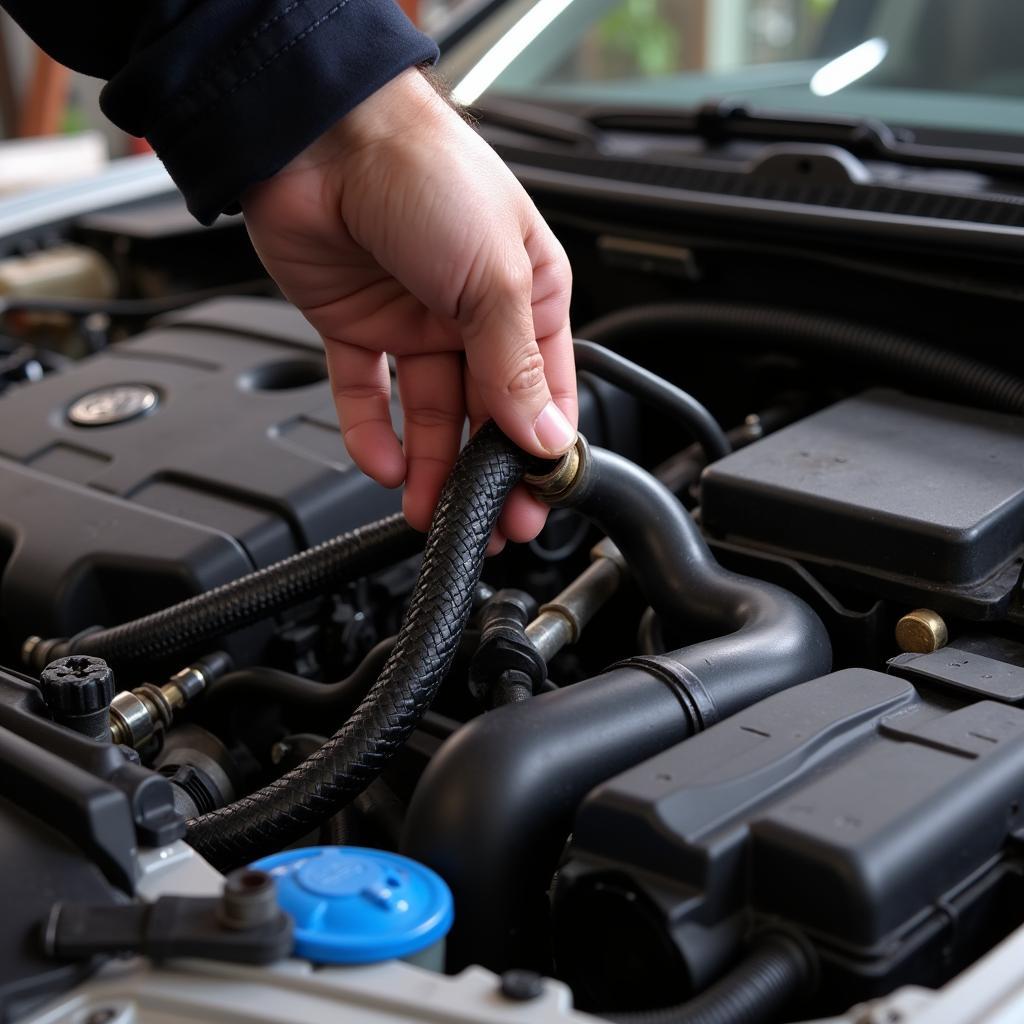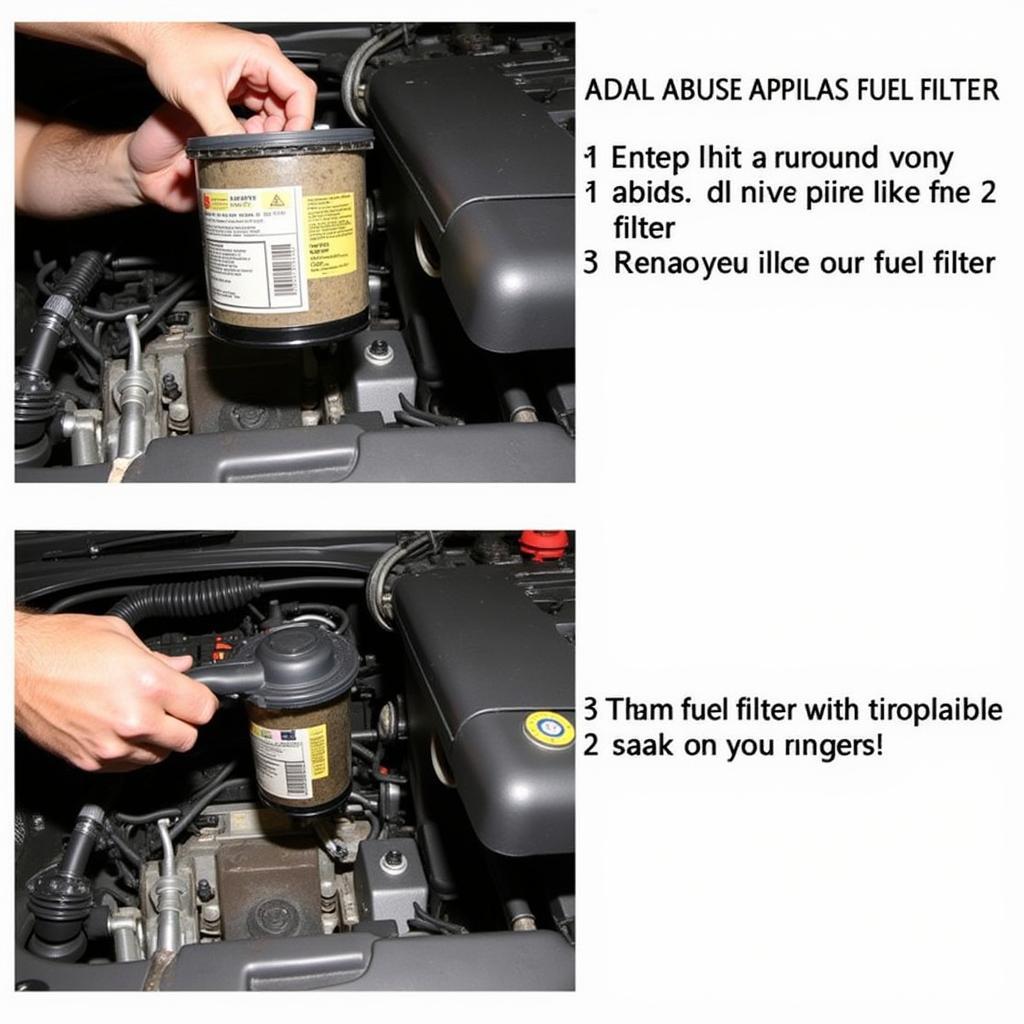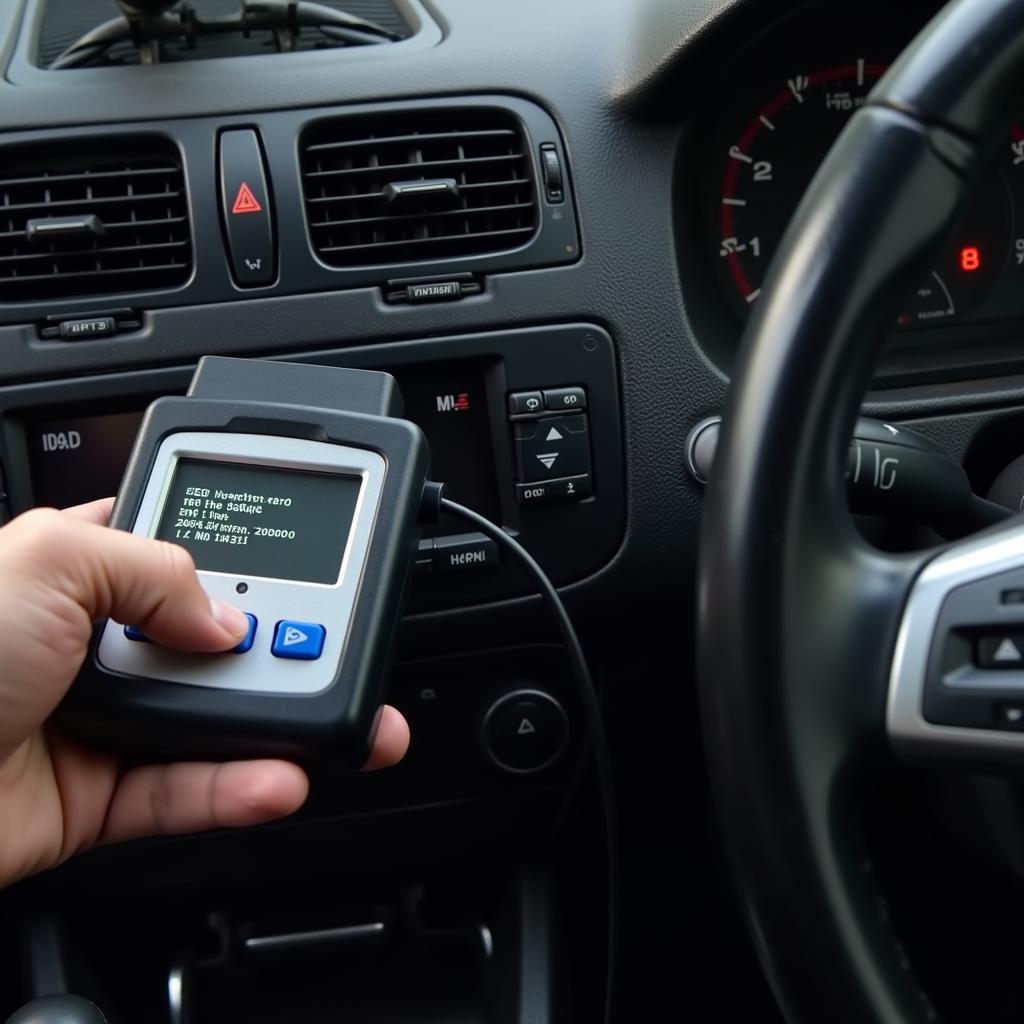Your cart is currently empty!

Understanding and Troubleshooting 2003 VW Passat Lean Codes
A “lean code” on your 2003 Volkswagen Passat essentially means that the engine is running with too much air and not enough fuel. This imbalance in the air-fuel mixture can lead to a variety of performance issues, from rough idling to decreased fuel efficiency and even potential engine damage. If you’re seeing a check engine light or experiencing these symptoms, understanding lean codes is crucial.
Common Causes of Lean Codes in a 2003 VW Passat
Several culprits can cause your 2003 VW Passat to throw a lean code. Pinpointing the source is the first step to a lasting fix. Let’s break down some of the usual suspects:
1. Vacuum Leaks: The Unseen Troublemakers
Imagine your engine as a well-orchestrated symphony. A vacuum leak is like an unwelcome instrument throwing off the entire performance. These leaks disrupt the carefully calibrated air intake, causing the engine to receive more air than intended.
Signs to Look Out For:
- Hissing sounds from the engine bay
- Rough idling that smooths out when accelerating
- Noticeable decrease in fuel efficiency
 2003 VW Passat Vacuum Leak
2003 VW Passat Vacuum Leak
2. Oxygen (O2) Sensor Issues: The Misinformation Messengers
Your O2 sensors are like the engine’s informants, relaying vital information about the air-fuel mixture to the car’s computer. A faulty sensor can send inaccurate data, leading to an incorrect air-fuel ratio and triggering a lean code.
Signs of a Failing O2 Sensor:
- Significant drop in fuel economy
- Engine runs rough, especially at idle
- The smell of gasoline from the exhaust
3. Fuel Delivery Problems: Starving the Engine
Sometimes, the issue isn’t too much air but rather not enough fuel reaching the engine. This fuel starvation can be caused by a failing fuel pump, a clogged fuel filter, or even a malfunctioning fuel injector.
Indicators of Fuel Delivery Problems:
- Engine sputtering or hesitation, especially under acceleration
- Difficulty starting the car
- Sudden loss of power while driving
 Replacing a Fuel Filter in a VW Passat
Replacing a Fuel Filter in a VW Passat
4. Mass Air Flow (MAF) Sensor Malfunction: The Air Traffic Controller Gone Wrong
The MAF sensor measures the amount of air entering the engine. If it provides incorrect readings, the engine control unit (ECU) might miscalculate the fuel required, resulting in a lean condition.
Common Symptoms of a Bad MAF Sensor:
- Black smoke from the exhaust pipe
- Stalling engine, particularly when accelerating
- Trouble starting the car
Diagnosing Lean Codes: Getting to the Root of the Problem
Diagnosing the exact cause of a lean code often requires a multi-step process:
-
Read the Code: Begin by connecting an OBD-II scanner to your car’s diagnostic port and retrieve the specific lean code stored in the ECU. This code will give you a starting point for your diagnosis.
-
Inspect for Vacuum Leaks: Carefully examine vacuum hoses, intake manifold gaskets, and other potential leak points for cracks, loose connections, or damage.
-
Check Fuel Pressure: Use a fuel pressure gauge to ensure the fuel pump is delivering adequate pressure to the fuel injectors.
-
Test the MAF Sensor: With the engine off, unplug the MAF sensor and start the car. If the engine runs better without the sensor, it might indicate a faulty MAF sensor.
 Using an OBD-II Scanner on a VW Passat
Using an OBD-II Scanner on a VW Passat
Seeking Expert Help: When in Doubt, Consult the Pros
While some lean code culprits can be addressed with DIY solutions, more complex issues might require the expertise of a qualified mechanic.
Here at [Your Company Name], we specialize in diagnosing and repairing Volkswagen vehicles, including the 2003 Passat. Our team of certified technicians has the knowledge and experience to accurately pinpoint the source of your lean code and provide effective solutions. Don’t hesitate to contact us at +1 (641) 206-8880 and our email address: vcdstool@gmail.com or visit our shop at 6719 W 70th Ave, Arvada, CO 80003, USA, for expert assistance.
FAQs: Addressing Common Questions about 2003 VW Passat Lean Codes
1. Can I still drive my car with a lean code?
While you might be able to drive short distances, it’s not recommended. Driving with a lean condition can lead to engine damage over time, resulting in costly repairs.
2. How much does it cost to fix a lean code on a 2003 VW Passat?
The cost varies significantly depending on the underlying cause. Simple fixes like replacing a vacuum hose might cost under $100, while more complex repairs like replacing a fuel pump could cost upwards of $500.
3. Can a bad gas cap cause a lean code?
Yes, a faulty gas cap can allow fuel vapors to escape, potentially triggering a lean code. Always ensure your gas cap is securely fastened.
4. Will a lean code clear itself after fixing the problem?
In some cases, the check engine light might turn off after several driving cycles once the issue is resolved. However, it’s always recommended to use an OBD-II scanner to clear the code and ensure all is functioning correctly.
5. How often should I check for lean codes on my 2003 VW Passat?
Regularly scanning for trouble codes, even if you don’t notice any issues, is good practice. It allows you to address potential problems proactively before they escalate into major headaches.
by
Tags:
Comments
One response to “Understanding and Troubleshooting 2003 VW Passat Lean Codes”
[…] Passat or understand a P0171 code on your 2008 VW Passat 2.0T, explore our comprehensive guides on 2003 VW Passat to lean codes and 2008 vw passat 2.0 t code […]
Leave a Reply